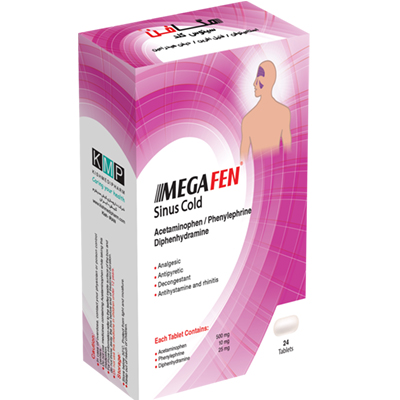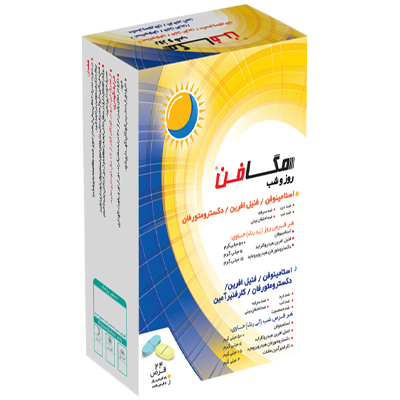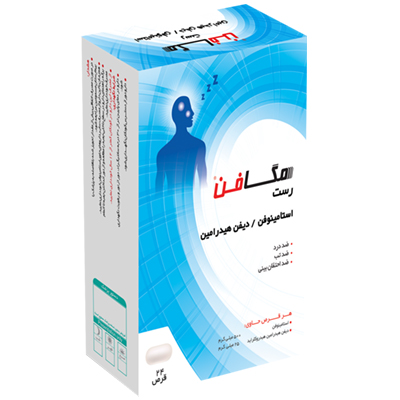Acne scars are the scars or indentations that remain on the skin after acne has healed. These skin lesions occur for a variety of reasons and appear as uneven and often bumpy textures on different areas of the skin, especially the face. Unlike acne itself, which can be controlled with topical and medical treatments, acne scars are usually caused by deeper damage to the skin layers and require specialized care and treatment.
The main reason acne scars remain is damage to the deeper structures of the skin, such as collagen and elastin fibers. When the skin becomes severely inflamed, the skin's repair system functions abnormally, rebuilding scar tissue in a rough and uneven manner. Also, slow skin healing or secondary infections can lead to longer-lasting scars. The reasons why acne scars last can be the following:
- Deep damage to the dermis layer of the skin
- Severe and long-lasting inflammation
- Secondary infections in the area of the boil
- Destruction of collagen and elastin fibers
- Abnormal inflammatory responses of the body
- Pressure and manipulation of welds at different stages
- Lack of proper care after acne and pimples
- Genetic factors in the skin repair process
The best ways to treat acne scars
Acne scar treatment is one of the biggest challenges in skin care. There are different types of acne scars, each with a different structure and depth on the skin. There are a variety of treatment methods available in specialized clinics with modern technologies that can help improve the appearance of the skin and reduce acne scars.
Using non-invasive methods such as laser therapy, microneedling, chemical peeling, and the use of Specialized anti-acne creams, has a significant effect on improving acne scars. These methods help regenerate collagen and, over time, reduce the depth and severity of scars by repairing the skin. We will mention the best methods for removing acne scars below:
- Laser therapy (fractional, CO2, etc.)
- Microneedling and collagen stimulation
- Chemical peels for skin exfoliation
- Using creams and serums containing retinoids
- Dermal filler treatment to fill in depressions
- PRP (platelet-rich plasma) injection
- LED light therapy and phototherapy
- Specialized massages and skin physiotherapy techniques
Treating acne scars with proper skin care
Skin care plays a key role in preventing acne scarring and helping scars heal faster. Consistent use of specialized products that contain active ingredients such as vitamin C, hyaluronic acid, antioxidants, and retinoids will strengthen the skin, increase cell regeneration, and improve skin elasticity.
Also, following hygiene tips, not touching pimples, protecting the skin from sunlight, and avoiding skin irritants are among the most important care principles. These measures, along with specialized treatments, can accelerate the healing process of scars. Effective skin care in treating acne scars are the following:
- Regular use of moisturizing and nourishing creams
- Using products containing retinoids to regenerate the skin
- Complete protection of the skin from sunlight (sunscreen)
- Avoiding pressure and manipulation of pimples and wounds
- Thorough and balanced skin cleansing with mild cleansers
- Using antioxidants to reduce inflammation
- Using Vitamin C Serums to Repair and Clarify Skin
- Periodic consultation with a dermatologist to follow up on the treatment process
Removing acne scars with effective medications
Topical and oral medications play an important role in reducing acne scars and treating remaining scars. Creams and gels containing retinoids, azelaic acid, hydroquinone, and salicylic acid reduce inflammation, stimulate cell renewal, and brighten the skin. Oral medications such as antibiotics, isotretinoin, and hormone therapy can also prevent the progression of acne and the scars it causes in certain cases.
Preventing acne scars is the most important step in treatment, which is possible with timely and proper control of this condition. Identifying irritants, maintaining skin hygiene, and choosing the right treatment method are the main keys to preventing scars. Effective medications and ways to prevent acne scars:
- Using topical retinoid creams
- Gels and creams containing azelaic acid
- Lightening creams such as hydroquinone
- Salicylic acid for gentle exfoliation
- Oral antibiotic medications to control infection
- Oral isotretinoin in severe cases
- Hormone therapy under specialist supervision
- Maintaining hygiene and not manipulating pimples
- Avoiding skin-irritating products
- Use sunscreen to prevent scarring
- Visiting a dermatologist in the early stages of acne
These were specifically dedicated to the treatment of acne marks and acne scars. For more comprehensive and detailed information about acne improvement and methods of dealing with it, it is recommended to refer to the related article. In that article, a complete review Acne treatment It has been addressed so that you can start the necessary care from the root of the problem.
What are the ways to prevent acne scars?
Acne scars are skin changes that remain after healing. These scars can appear as dimples, bumps, discoloration, or uneven skin, and vary depending on the type and severity of acne. In fact, acne scars represent the skin's healing process after damage caused by severe inflammation.
Accurately identifying the type of acne scar and distinguishing it from other skin problems is of great importance because each type of acne scar requires its own specific treatment method. For this reason, timely diagnosis and consultation with a specialist are the main keys to successful treatment of acne scars. Below, you will learn about the different types of this skin problem.
- Sunken (atrophic) acne scar
- Raised (hypertrophic) acne scars
- Pigmented acne scars (hyperpigmentation)
- Red and inflamed acne scars
- Combination acne scars (deep and pigmented)
- Acne scars caused by pressure and manipulation of the pimple
- Temporary and permanent acne scars
In the end, treating acne scars and blemishes requires patience, specialized methods, and proper skin care. Combining pharmaceutical treatments, specialized care, and the use of modern technologies can help significantly improve the skin and restore its natural beauty. Choosing the best method for the type and severity of acne scars, consulting with a specialist, and carefully following the treatment process are the keys to success in this path.
Treating acne scars from years ago; is it still possible?
The answer is yes. There are various methods that can help reduce and even completely eliminate acne scars. These treatments are selected depending on the type, depth, and duration of acne scars. The most important point is that specialized treatments tailored to individual conditions can have significant effects.
Having old, deep acne scars on the skin is a challenging experience that many people face. Although these marks may have remained on the skin for years, with modern advances in the field of beauty and skin treatments, there is no longer a need to accept these problems permanently. The answer to the question of what acne scars are and how they can be treated even after years has passed is very important. By accurately understanding these scars and using scientific methods, it is possible to restore the beauty and health of the skin.
Treating acne scars from years ago is a complex process that requires accurate diagnosis. Older scars usually require more specialized and long-term treatments due to the long-term destruction of the skin structure. Methods such as fractional lasers, microneedling, deep chemical peels, and even some topical and oral medications can be effective in repairing and improving the appearance of the skin. Each method has advantages and limitations that should be chosen according to skin type and severity of the scar.
Along with specialized treatments, consistent use of proper skin care, including moisturizers, sunscreens, and antioxidants, helps speed up the healing process and maintain treatment results. Also, paying attention to a healthy lifestyle, proper nutrition, and avoiding skin-damaging factors are of great importance in the success of treatment.
Therefore, despite the challenges of treating old acne scars, with the help of scientific methods and specialized care, it is possible to restore the skin to a healthy and clear state and minimize the effects of years of acne. To choose the best treatment method, it is essential to consult a dermatologist and undergo a thorough examination.
What tips should be followed before and after acne scar treatment?
In this section, you will learn about a set of the most important tips before starting treatment and vital aftercare for acne scars. If you are planning to take a safe step to restore the health and beauty of your skin, do not miss this guide. And if you are looking for complete knowledge, if Everything you need to know about acneWe recommend that you refer to our comprehensive article on facial acne. Please pay attention to the essential points mentioned below before treating acne scars:
Consult a dermatologist: The first and most important step is to consult an experienced dermatologist. Diagnosing the type of scar (atrophic, hypertrophic, or keloid) and choosing the right treatment requires a careful evaluation.
Avoid tanning or sunbathing: The skin should not be exposed to direct sunlight before treatment, as the skin's melanin is stimulated and the risk of discoloration or staining increases during treatment.
Stop taking certain medications with your doctor's advice: Some medications, such as isotretinoin or certain supplements, can affect the healing process of your skin. Your doctor may suggest temporarily stopping them.
Prep your skin with the right products: Using hydrating serums, niacinamide, or mild retinoids (as prescribed by your doctor) will help strengthen your skin and make it more ready.
Stop using harsh exfoliants or home remedies: Scrubs, charcoal masks, or chemical peels at home can make your skin sensitive and vulnerable. They should be discontinued at least two weeks before your main treatment.
Vital care after acne scar treatment
Full sun protection: After acne scar treatment (laser, microneedling, peeling or injections), the skin is very sensitive to sunlight. Daily use of sunscreen with a high SPF and a hat is essential.
Do not pick or remove scabs: After some treatments, such as laser or microneedling, the skin may peel. Under no circumstances should you pick them off, as there is a risk of scarring.
Use of restorative and antibacterial creams: To prevent infection and accelerate skin healing, it is essential to use special restorative creams (such as Cicalfit or Bioderma) as prescribed by a doctor.
Avoid cosmetics for 72 hours: Cosmetics can irritate open pores or cause breakouts. It's best to avoid using them for at least three days.
Proper skin hydration: Skin is prone to dryness and inflammation after treatment. Using gentle, fragrance-free moisturizers will help keep the skin hydrated and soft.
Avoid heavy exercise and excessive sweating: You should not engage in activities that cause heavy sweating for at least two to three days after treatment, as it can increase skin irritation and inflammation.
Taking skin-strengthening supplements: Supplements such as zinc, vitamin C, or collagen can help regenerate tissue and reduce the depth of acne scars. However, this should be coordinated with a doctor.
Be patient while waiting for results: It takes time for the skin to fully heal. You should not expect scars to disappear immediately after treatment. Some treatments may require multiple sessions.
Review of Acnemis Gel Ingredients and Its Effect on Acne Scar Treatment
Acnemis Gel is an effective combination of clindamycin phosphate and tretinoin designed to treat acne scars. Clindamycin phosphate is a topical antibiotic that inhibits acne-causing bacteria. By reducing inflammation, erythema, and redness around acne lesions, it provides the conditions for healing and preventing scar aggravation. In addition, tretinoin, as a strong retinoid, stimulates collagen production in the dermis layer, accelerates cell renewal, and thus reduces the depth of depressions. This dual combination, while reducing inflammation, deeply regenerates the skin and accelerates the healing process of acne scars. Regular and planned use of this gel can make the skin texture more uniform and greatly reduce the memorable effects of acne scars. Function of Acnemis Gel Ingredients:
- Inhibits the growth of acne-causing bacteria
- Reduces inflammation and redness of the skin
- Stimulates collagen production and improves skin texture
- Accelerates cellular regeneration
- Reduce the depth and appearance of acne scars
Benefits of Acnenomy Gel for Treating Acne Scars
Acnemis Gel has significant benefits for treating acne scars. First, it is a combination of an antibiotic and a retinoid that simultaneously controls inflammation and activates regeneration. The product is oil-free, so it is suitable for oily and acne-prone skin and does not cause a heavy feeling on the skin. The pump packaging helps prevent product contamination and allows for more precise application. Its anti-comedogenic properties also reduce the risk of clogged pores. The gel also gently reduces fine lines and discoloration caused by acne and improves the overall skin surface. Key benefits and features of Acnemis Gel are as follows:
- Antibiotic and retinoid combination
- No trace of excess fat
- Hygienic packaging with pump
- Preventing the formation of comedones
- Reduces fine lines and pigmentation
Contraindications to the use of Acnomys gel during pregnancy
One of the crucial points in using Acnemis gel is to pay special attention to pregnant and lactating women. The prohibition of use during pregnancy is due to the presence of tretinoin, which is a strong retinoid with the ability to penetrate deep into the skin. If it regularly crosses the placenta, it increases the risk of fetal anatomical development. Dermatologists recommend that the use of this gel be completely discontinued during pregnancy and that people of childbearing age consider contraception methods simultaneously with treatment.
- Prohibition of use during pregnancy
- Tretinoin's ability to cross the placenta
- The need to prevent pregnancy during treatment
- Alternatives to low-risk methods for pregnant women
How to use Acnemis correctly and usage pattern to reduce acne scars
To achieve the desired effect, careful and gradual use of Acnemis gel Required. First, you should wash your skin with a mild alcohol-free cleanser and then apply a small amount of the gel to the acne area. It is recommended to use it only at night and use a sunscreen with an SPF of at least 30 during the day. In the first few weeks, the amount of use should be limited (for example, every other night) so that the skin has time to get used to the tretinoin. Later, the frequency can be increased to every other day. Note that the skin may experience mild dryness or redness for a few days; this reaction is usually normal and can be managed with a suitable moisturizer.
- Use at night after gentle cleansing.
- Start gradually 2 to 3 times a week
- After skin gets used to it, use at night.
- Comes with SPF≥30 sunscreen
- Managing redness and dryness with moisturizer
Supportive care to increase the effectiveness of scar healing
In order for acne scar treatment with Acnemis Gel to be as effective as possible, follow-up care is very important. Daily use of sunscreen prevents the scar from worsening. Avoiding strong exfoliating products or harsh masks helps prevent skin irritation. Eating a diet rich in antioxidants (such as fruits, vegetables, and omega-3) helps regenerate the skin from the inside. Also, drinking enough water, avoiding touching areas with acne and scars, and using fragrance-free moisturizers contribute to accelerating tissue healing and reducing inflammation.
- Daily use of appropriate sunscreen
- Avoid harsh products and strong exfoliants.
- Nutrition rich in antioxidants and omega-3
- Drink enough water and keep your skin hydrated.
- Do not manipulate areas with acne scars.
- Use a fragrance-free moisturizer
With careful adherence to instructions and supportive care, Acnemis Gel can play a significant role in treating acne scars and improving skin texture; however, it should be noted that for complete treatment of deep scars, this product may need to be combined with specialized methods such as laser or microneedling.
Conclusion
Acne scars are a common and unpleasant consequence of severe, inflammatory acne that usually remain after the pimples and skin inflammations have healed. These scars can appear as dimples, bumps, or discoloration of the skin and can negatively impact a person’s appearance and self-confidence. The main reason acne scars remain is deep damage to the skin’s layers and a chronic inflammatory process that destroys skin tissues and reduces the skin’s ability to heal naturally.
Fortunately, with the advancement of dermatology, there are a variety of effective methods for treating acne scars. Proper and regular skin care, the use of specialized creams and serums containing regenerating and anti-inflammatory ingredients, can help improve skin texture and color. In addition, certain topical and oral medications also help reduce inflammation and stimulate collagen production in the skin, which speeds up the healing process.
Clinical procedures such as laser therapy, microneedling, and chemical peels are also considered to be among the most effective solutions for correcting deeper scars. These techniques help repair damaged tissue and improve the appearance of acne scars by stimulating skin regeneration and collagen production.
But the most important thing in managing acne scars is to prevent severe acne and skin inflammation. Taking care of acne-prone skin, avoiding squeezing or picking at pimples, and seeing a specialist for proper treatment can prevent scarring and maintain skin health.
Ultimately, combining the right treatments with preventative care is the best way to have smooth, clear, acne-free skin.




